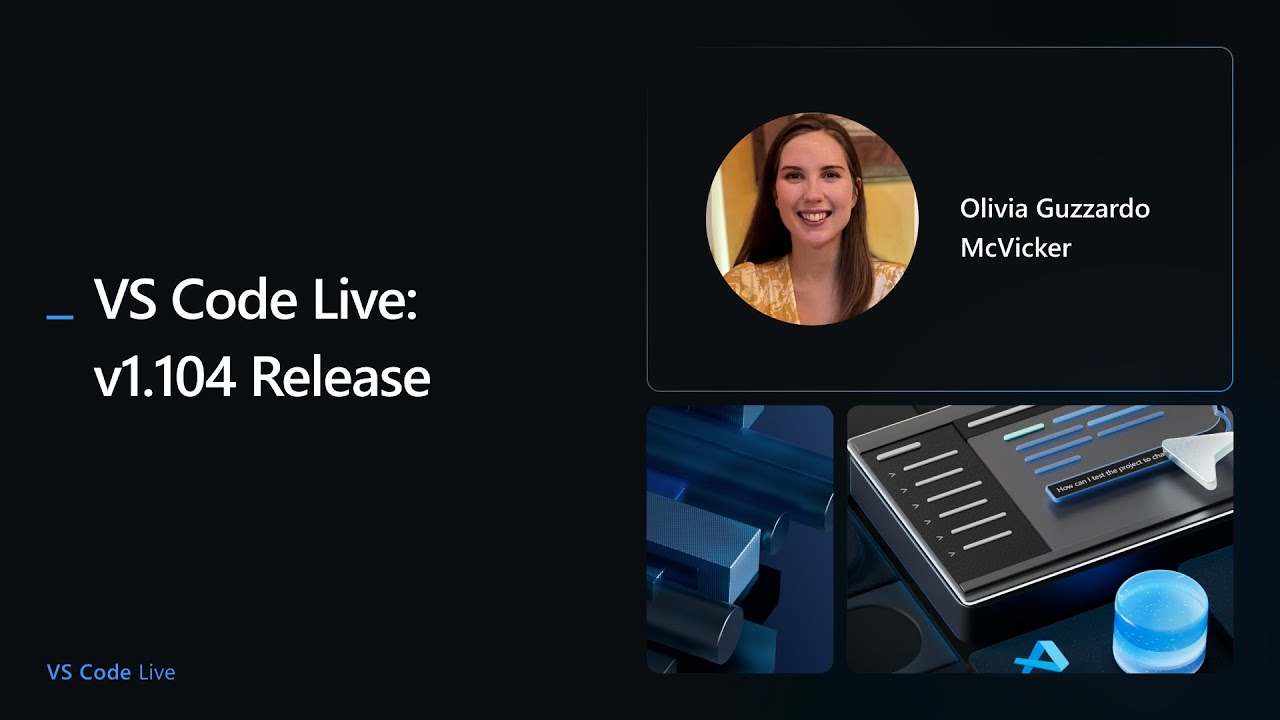The VS Code Live v1.104 release stream highlighted new AI-powered features including GitHub Copilot’s autonomous coding agents, standardized AI instruction files, automatic AI model selection, and a “bring your own key” API for integrating third-party language models. The update also showcased enhanced UX improvements and AI Toolkit integrations, emphasizing community collaboration and customizable, scalable AI capabilities within VS Code.
The VS Code Live v1.104 release stream, hosted by Olivia from the VS Code team, showcased a variety of exciting new features and integrations in the latest VS Code update. The stream began with a warm welcome and an acknowledgment of the vibrant open-source community contributing to VS Code. Olivia introduced the first demo by Alex and Osvaldo, who demonstrated the GitHub Copilot coding agent integration. This feature allows users to assign coding tasks to the AI agent, which autonomously works on issues and creates pull requests without using local resources. The demo highlighted improvements such as assigning tasks via to-do comments, managing multiple coding agent sessions, and enhanced pull request handling within VS Code.
Following this, Harold Kushner presented the new agents.md file feature, designed to standardize instructions for AI agents across different products. This markdown file helps ground AI agents with relevant context about the codebase, improving their effectiveness. Harold also discussed the integration of custom instructions and modes, enabling users to tailor AI behavior more precisely. He emphasized the importance of keeping these instruction files concise and linked to other relevant documentation. Additionally, Harold showcased the copilot chat debug view, a tool for users to inspect the inner workings of AI interactions, aiding transparency and troubleshooting.
New, a GitHub PM, introduced the “auto” model selection feature, which automatically chooses the best available AI model based on availability and cost considerations. This feature simplifies the user experience by removing the need to manually select models, offering a mix of premium and included models like GPT-5 and Sonic 4. Auto is rolling out to various Copilot subscription tiers and promises future enhancements to dynamically select models based on task context and user preferences. The demo illustrated how auto integrates seamlessly with agent mode, helping users focus on their coding tasks without worrying about underlying model complexities.
Pierce Vogen, VS Code product lead, discussed the new “bring your own key” (BYOK) API, which allows third-party extensions to contribute language models to GitHub Copilot. This extensibility enables users to access a broader range of AI models from various providers, such as Cerebras, Hugging Face, and Open Router, directly within VS Code. Pierce demonstrated how users can manage these models, install provider extensions, and even use a generic OpenAI-compatible endpoint as a fallback. The BYOK API empowers the community to expand VS Code’s AI capabilities, fostering a customizable and scalable AI ecosystem.
The stream concluded with demos from the AI Toolkit extension team and Joanna, a senior product designer on VS Code. The AI Toolkit extension integrates multiple cloud and local AI models, including Foundry local models, allowing users to build and evaluate AI agents within VS Code. Joanna showcased recent UX improvements in the chat and agent modes, such as enhanced release notes formatting, collapsible file diffs, chat panel maximization, and to-do list integration. She emphasized the team’s commitment to user feedback, iterative design, and balancing feature richness with usability. The session wrapped up with a call for community input on ongoing and upcoming features, reinforcing the collaborative spirit behind VS Code’s continuous innovation.
